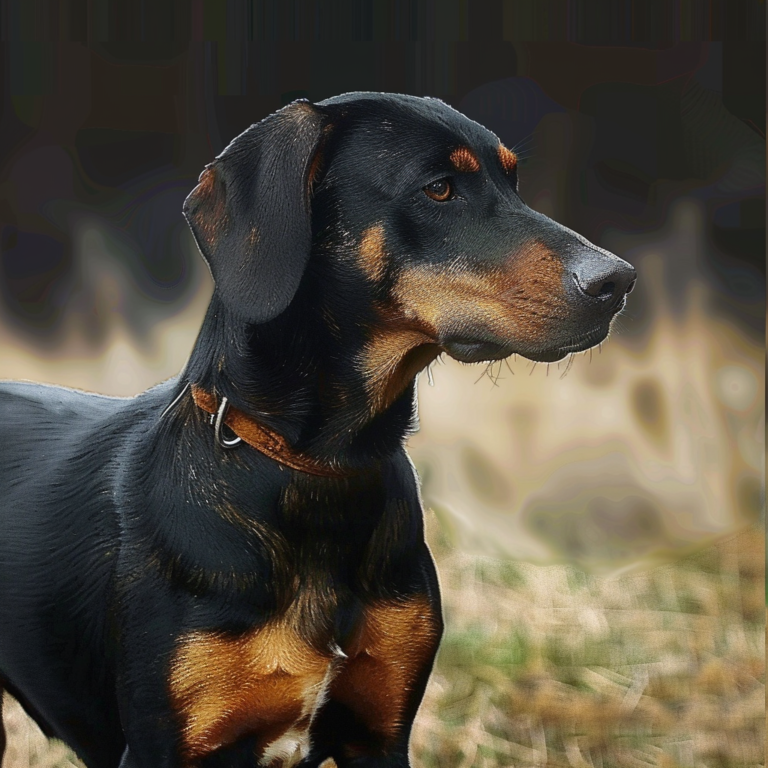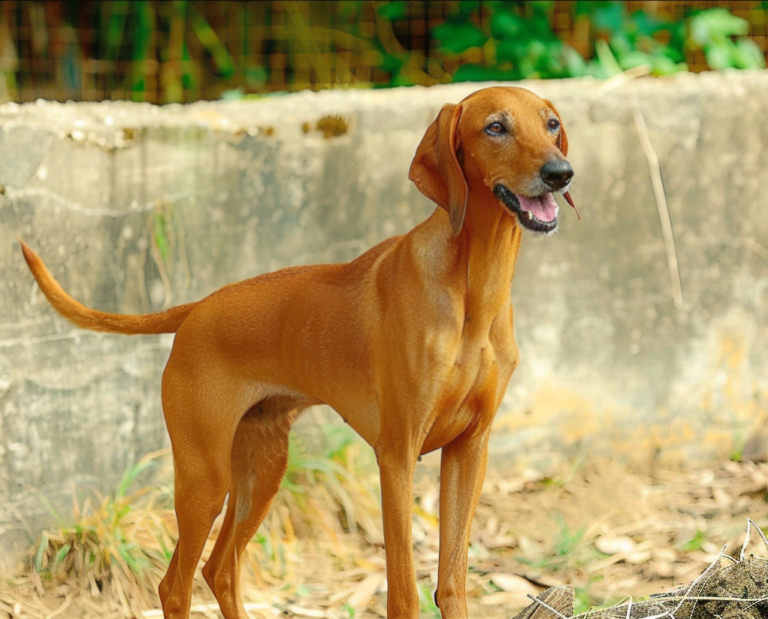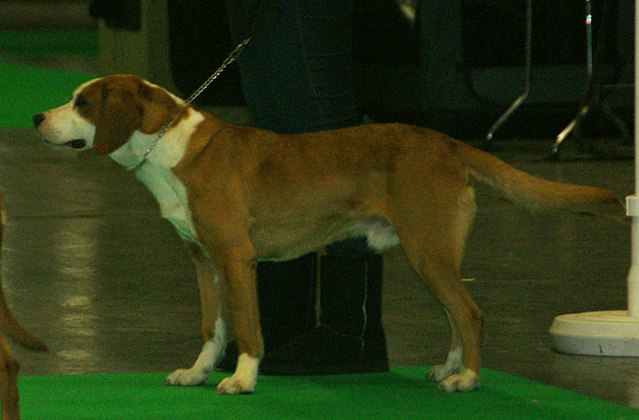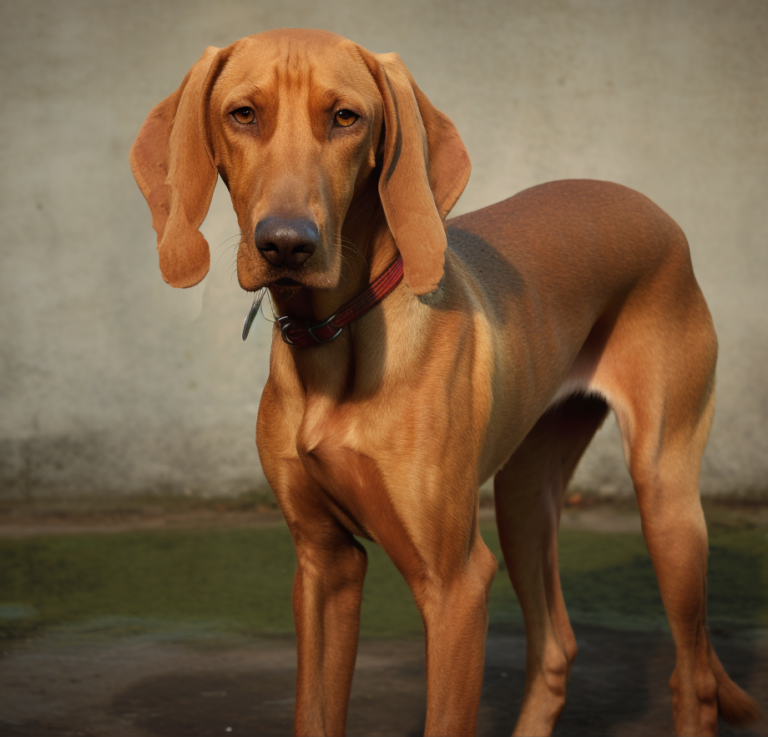The Basset Bleu de Gascogne is descended from the Grand Bleu de Gascogne – both are ancient breeds in their own right. Characterized by his “blue” coat, short legs and long back, he is a scenthound that almost went extinct in the early 19th century but was brought back by dedicated fanciers, particularly a man named Alain Bourbon. Today he is a rare breed, and although he is recognized by the UKC in the United States, he is most commonly seen in his home country of France.
Like his cousin the Basset Hound, the Basset Bleu is small in height but a medium sized dog in terms of weight. He also shares the same deep, melodious voice as well as the smooth yet dense coat. Although easy to groom, he does shed and can tend to smell – a byproduct of the oily coat possessed by certain hunting breeds. Like most pack hunting dogs, he gets along well with other dogs and can live easily in a multi-dog household. He doesn’t tend to be very territorial towards strange dogs and is generally a welcoming fellow.
The Basset Bleu de Gascogne is easygoing and affectionate to his owners, including children. This said, if he smells something enticing like a woodland creature in the backyard, he is apt to “forget” about his owner and wander off in search of prey. He loves to hunt above almost anything else – which also means he may not make the best companion for a cat or other small pet! This hunting animal does best in a home with a securely-fenced yard, and can get frustrated in a small living area such as an apartment. Not to mention his voice (which he uses freely and loudly) also doesn’t make him the best neighbor in an apartment setting.
The Basset Bleu is a playful fellow who has high social needs and does best in a home where he won’t be alone all day. Some people have found success by introducing a canine buddy (or more) in order to keep him company while they are gone, although those who work long hours probably aren’t the best match. This friendly hound loves being around people so much that he also makes a terrible watchdog and/or guard dog. While he will probably bark when someone comes near the house… he does this all the time anyway and is unlikely to raise suspicion (much like a car alarm). If someone were to break in, he may or may not really care, short of saying hi to the newcomer. 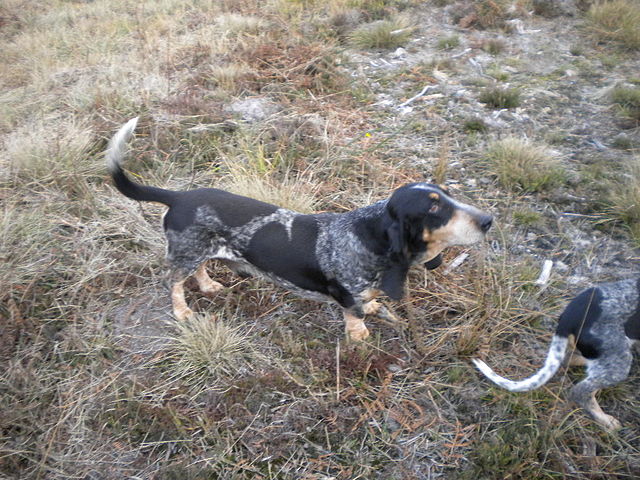
Although eager to please in some regards, the Basset Bleu de Gascogne can be challenging to train. To start with, his high prey drive and desire to sniff the ground at all times means that an owner or trainer will need to make themselves more interesting than the distractions! Second, he is stubborn and independent-minded which means that the owner must be prepared to set down rules and hold tight to them. Many of these hounds will work for food so be prepared to go into a training session with plenty of food rewards, but resist the urge to bribe. He actually needs to work for his rewards! Finally, start training early. It will be easier.
Although his appearance may suggest he is lazy, the Basset Bleu is actually an active breed with a decent amount of athletic ability. He needs an owner as active as he is – ideally someone who can take him hunting as he also needs mental stimulation. If hunting isn’t an option, other mental activities can be substituted as long as they are challenging. He makes a delightful walking companion as his outgoing nature earns him friends wherever he goes – with correct socialization it is rare for this breed to be overly shy or aggressive. Once home from a satisfying walk, he is likely to lay down and nap.
The Basset Bleu de Gascogne can be prone to gaining too much weight if overfed or under-exercised, so make sure to stay on top of food portions. He can also be somewhat prone to bloat, the risk of which can be minimized (although not eliminated) by various practices such as not allowing him to play hard right after eating. Overall, however, this is a healthy breed that tends to live 13-14 years.
